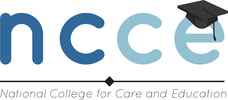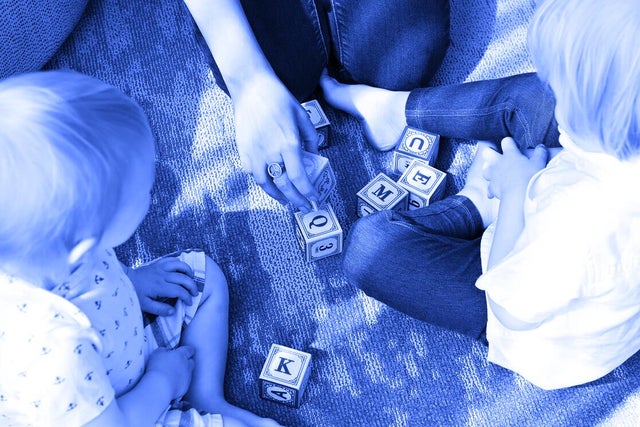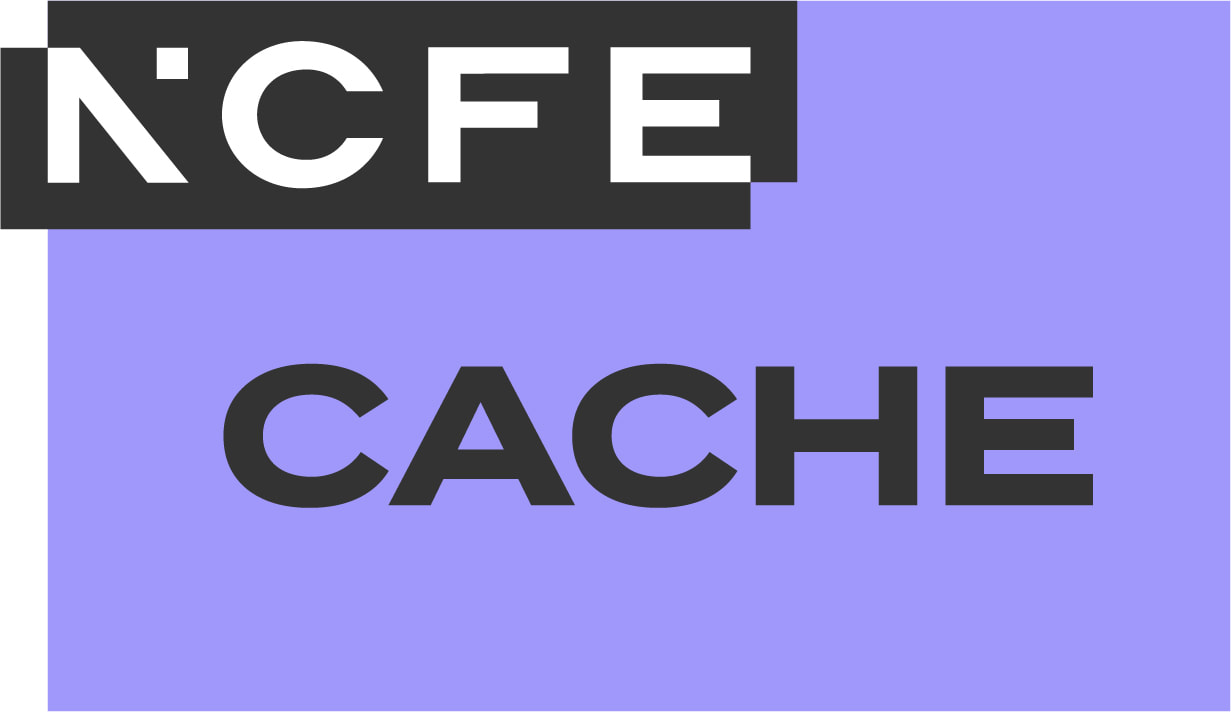- Early Years Education
- >
- CACHE Level 4 Certificate for the Advanced Practitioner (Early Years)
CACHE Level 4 Certificate for the Advanced Practitioner (Early Years)
SKU:
£680.00
75.56
680
£75.56 - £680.00
Unavailable
per item
-
Key Facts
-
Description
-
Placement
-
Syllabus
-
Your Future
<
>
Qualification Level: 4
Regulated Qualification (QRN) Number: 601/8424/3
Placement Required: Yes
Recognised Qualification: Yes. RQF
Entry Requirements: L2 Literacy and Numeracy preferred
Minimum Age: 18 Years
Pre-requisites: You need to have achieved an Early Years Educator Diploma and be working in an Early Years setting.
Duration: 24 weeks of guided teaching and learning plus research project time. Enrolment period is for up to 12 months.
Payment types: Instalments available
Resources included: Full tutor support, online learning materials and student support forum.
This course would suit learners who are looking to develop leadership and specialist skills for use in their current role, or in preparation to take on a specialist role such as a Special Educational Needs Coordinator or a Physical Activity and Nutrition Coordinator.
It would also suit learners who want to progress to further learning to take on a position of leadership within the setting.
Regulated Qualification (QRN) Number: 601/8424/3
Placement Required: Yes
Recognised Qualification: Yes. RQF
Entry Requirements: L2 Literacy and Numeracy preferred
Minimum Age: 18 Years
Pre-requisites: You need to have achieved an Early Years Educator Diploma and be working in an Early Years setting.
Duration: 24 weeks of guided teaching and learning plus research project time. Enrolment period is for up to 12 months.
Payment types: Instalments available
Resources included: Full tutor support, online learning materials and student support forum.
This course would suit learners who are looking to develop leadership and specialist skills for use in their current role, or in preparation to take on a specialist role such as a Special Educational Needs Coordinator or a Physical Activity and Nutrition Coordinator.
It would also suit learners who want to progress to further learning to take on a position of leadership within the setting.
The content covers the age range from 0-5 years and includes the following areas:
- enabling children to learn
- promoting health and wellbeing
- special educational needs
- working with families implementing change
Learners will develop and use skills of leadership, mentoring, coaching and reflection as they complete the qualification through work-based learning opportunities.
The course is very research based, which will be implemented into your practice. A range of tasks will be completed by you to gather together your portfolio over a period of 30 weeks. It contains a mixture of practical based and theoretical based study work and you will also complete a research project.
- enabling children to learn
- promoting health and wellbeing
- special educational needs
- working with families implementing change
Learners will develop and use skills of leadership, mentoring, coaching and reflection as they complete the qualification through work-based learning opportunities.
The course is very research based, which will be implemented into your practice. A range of tasks will be completed by you to gather together your portfolio over a period of 30 weeks. It contains a mixture of practical based and theoretical based study work and you will also complete a research project.
To complete this qualifiction, you must be employed within the Early Years sector, working in an Ofsted registered setting with children aged from birth to 5.
Please note, after school clubs and toddler groups are not appropriate for this qualification.
Please note, after school clubs and toddler groups are not appropriate for this qualification.
The Advanced Early Years Practitioner course is broken into 4 6-week blocks, as follows. Blocks are independent from one another, and your starting "block" will vary depending upon when you enrol with the college. There is also a research project to complete that runs for the duration of the course.
Block 1: Enabling children to learn: In this unit, learners will consider diverse approaches to early years pedagogy that influence holistic learning of babies and children from birth to five years of age. They will also explore statutory planning and monitoring requirements in their own country. Learners will also explore leadership, mentoring and management skills. Learners will gain a greater awareness of how babies and young children learn and how to apply theory to practice.
Block 2: Promoting health and well-being through physical activity and nutrition co-ordination (PANCo) in the early years: In this unit, learners will examine the benefits of physical activity and the importance of diet to the health and well-being of babies, children and their families. This unit will encourage learners to consider statutory framework requirements, a range of national and local initiatives, advice and guidance, and wider international perspectives that are instrumental to the health and well-being of babies and children. Undertaking this unit will support change through a reflective cycle of continuous improvement to practice in own setting. Learners will be required to co-ordinate and evaluate physical activity and nutrition in their own setting. They will work with staff, parents and carers, and other professionals, to make positive changes for the health of babies and children, in the role of a Physical Activity and Nutrition Coordinator (PANCo).
Block 3: Working with others to support children with additional needs, including Special Educational Needs and Disability: In this unit, learners will look at effective inclusion for children in early years settings. The unit has been designed to support and evidence the leadership and management skills of the Special Educational Needs Coordinator (SENCO) in their role of leading best practice for children with Special Educational Needs and Disabilities (SEND) and their families.
Block 4: Working with families and other professionals in early years settings: In this unit, learners will examine statutory requirements for working in partnership with families, and learn how effective partnership working with other professionals can improve the care and development of babies and children in own setting. Through this unit, learners will explore some of the diverse needs of families, and reflect on how best to overcome barriers to partnership working with families. In undertaking this unit, learners will apply coaching, leadership and mentoring skills to educate and motivate staff to work effectively in partnership with others.
Reasearch project: Implementing change in an early years setting incorporating a small-scale research project: In this unit, learners will be required to plan, implement and evaluate change in relation to an identified theme. This will be achieved through a small-scale research project. Learners will be introduced to research, and the role of ethics when undertaking research. The theme selected will allow learners to reflect on practice, use current research to produce recommendations for improvements to own setting, implement these recommendations and summarise findings.
Block 1: Enabling children to learn: In this unit, learners will consider diverse approaches to early years pedagogy that influence holistic learning of babies and children from birth to five years of age. They will also explore statutory planning and monitoring requirements in their own country. Learners will also explore leadership, mentoring and management skills. Learners will gain a greater awareness of how babies and young children learn and how to apply theory to practice.
Block 2: Promoting health and well-being through physical activity and nutrition co-ordination (PANCo) in the early years: In this unit, learners will examine the benefits of physical activity and the importance of diet to the health and well-being of babies, children and their families. This unit will encourage learners to consider statutory framework requirements, a range of national and local initiatives, advice and guidance, and wider international perspectives that are instrumental to the health and well-being of babies and children. Undertaking this unit will support change through a reflective cycle of continuous improvement to practice in own setting. Learners will be required to co-ordinate and evaluate physical activity and nutrition in their own setting. They will work with staff, parents and carers, and other professionals, to make positive changes for the health of babies and children, in the role of a Physical Activity and Nutrition Coordinator (PANCo).
Block 3: Working with others to support children with additional needs, including Special Educational Needs and Disability: In this unit, learners will look at effective inclusion for children in early years settings. The unit has been designed to support and evidence the leadership and management skills of the Special Educational Needs Coordinator (SENCO) in their role of leading best practice for children with Special Educational Needs and Disabilities (SEND) and their families.
Block 4: Working with families and other professionals in early years settings: In this unit, learners will examine statutory requirements for working in partnership with families, and learn how effective partnership working with other professionals can improve the care and development of babies and children in own setting. Through this unit, learners will explore some of the diverse needs of families, and reflect on how best to overcome barriers to partnership working with families. In undertaking this unit, learners will apply coaching, leadership and mentoring skills to educate and motivate staff to work effectively in partnership with others.
Reasearch project: Implementing change in an early years setting incorporating a small-scale research project: In this unit, learners will be required to plan, implement and evaluate change in relation to an identified theme. This will be achieved through a small-scale research project. Learners will be introduced to research, and the role of ethics when undertaking research. The theme selected will allow learners to reflect on practice, use current research to produce recommendations for improvements to own setting, implement these recommendations and summarise findings.
Upon completion of this qualification, you can apply for roles such as:
SENCO (Special Educational Needs Coordinator) - for staff who are undertaking the responsibility of SENCO in the setting.
PANCO role (Physical Activity and Nutrition Coordinator). www.panco.org.uk/join-the-network
Internal progression at higher level including those with management responsibilities.
Leadership, mentoring, supervision and management opportunities.
You may wish to engage in further study- such as our level 5 Senior Practitioner Diploma, or a top up degree in Early Years.
SENCO (Special Educational Needs Coordinator) - for staff who are undertaking the responsibility of SENCO in the setting.
PANCO role (Physical Activity and Nutrition Coordinator). www.panco.org.uk/join-the-network
Internal progression at higher level including those with management responsibilities.
Leadership, mentoring, supervision and management opportunities.
You may wish to engage in further study- such as our level 5 Senior Practitioner Diploma, or a top up degree in Early Years.







